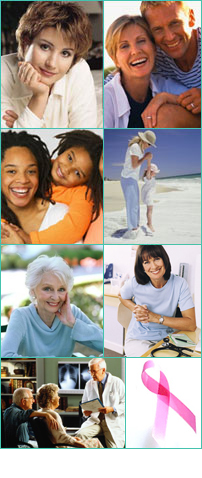Although there is a tremendous sense of relief at the end of treatment, there is also a surge of new anxieties. At the forefront of your mind is the fear that, because you are no longer actively targeting the cancer, more cancer cells may be slowly starting to grow back. Or you may be afraid that your surgeon did not get all of the cancer cells out.
Also, finishing treatment entails a difficult adjustment period. You go from seeing your healthcare team every day, to seeing them weekly, and then monthly for follow-ups. You’ve enjoyed the assurance and support of your medical team for months, and now you are suddenly "on your own." Many women liken a doctor's send-off of, "OK, you're done with therapy. See you in 6 months," to the break-up of a personal relationship.
In addition to having these psychological separation anxieties, your body finally is being given a chance to recover from the tremendous stresses of treatment. If you have just finished chemotherapy, it may be the first time that you have actually had the emotional energy to reflect upon the events that have happened to you. This realization and introspection can be incredibly frightening.
Readjusting to family life, returning to work, and accepting your body if you have had a mastectomy are all incredibly stressful challenges.
Unfortunately, the psychological and physical aspects of the recovery period largely have been neglected by the mental health and medical professions. Although every detail of diagnosis and treatment is spelled out, and the patient is carefully guided every step of the way, the post-treatment period represents uncharted territory. Regrettably, most doctors do not offer a physical recovery plan or nutritional and exercise guidelines for their post-treatment patients. In the post-treatment period, besides all the other issues with which you are coping (such as returning to work, dealing with insurance companies, bills, etc.), you are also confronted with the challenges of re-establishing your physical and emotional health, pretty much by yourself. A very tall order indeed!
Emotional support from your loved ones and participating in support groups of other survivors may help you through this difficult period. Sharing feelings and experiences can be empowering. |


